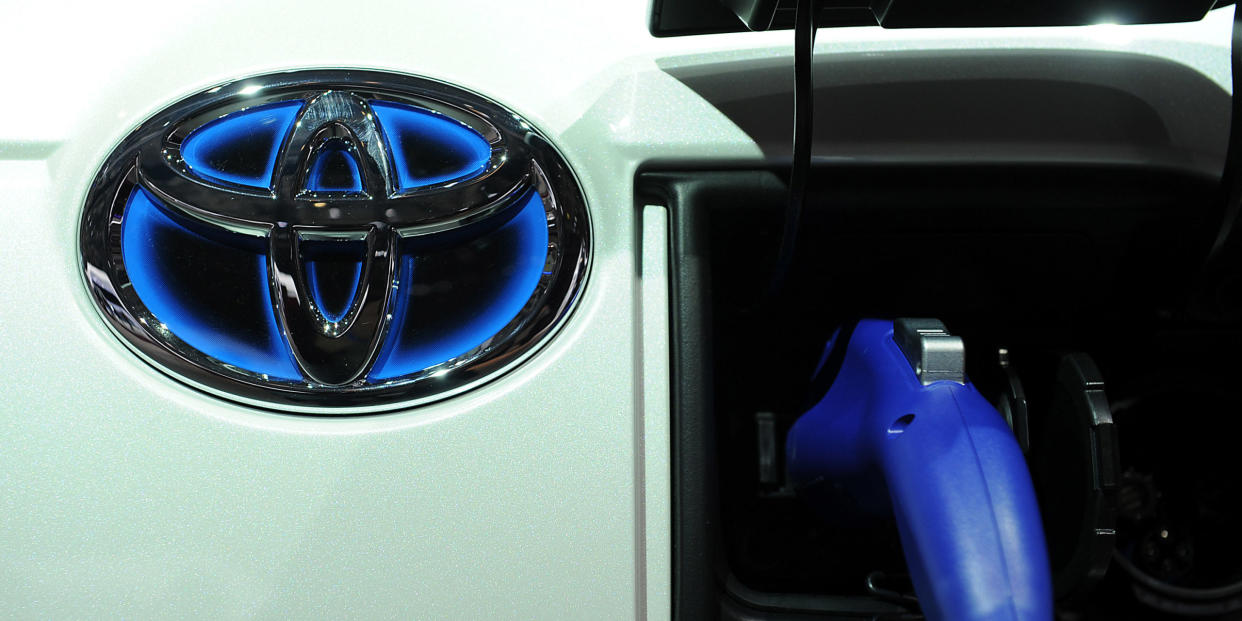New Battery Tech Could Let Electric Cars Charge in Mere Minutes

No matter how many people are lining up to pre-order the Tesla Model 3, modern-day electric cars have two major, seemingly insurmountable drawbacks. They cannot go nearly as far as gas-powered cars, and it takes much, much longer to charge up a battery than it does to fill up a tank. While incremental advancements are slowly chipping away at bot issues, Toyota might have a solution that could fix both at once. Maybe.
According theJapanese newspaper Chunichi Shimbun by way of Reuters, Toyota is prepping a new line of electric cars for 2022 that would use a completely new battery technology. Long charge times and low range (not to mention explosion hazards) are all tied to current cars' lithium-ion battery tech. These are the kind of batteries Tesla's Gigafactory is ramping up to churn out.
This new line of Toyota cars would use "solid-state" batteries, a relatively new battery tech where the cell's electrolyte is solid instead of liquid. This not only increases efficiency and the speed of charging, but also reduces the batteries' volatility. According to Chunichi Shimbun, these new batteries could fully charge in two or three minutes, compared to 20 or 30 with current lithium-ion tech.
There are, of course, a whole bunch of caveats to consider. The year 2022 is still a half a decade away, and there is plenty of time for other tech to advance and challenge this nascent battery type. Also, scaling battery tech can be a huge challenge when the tech is a known quantity, much less when it has yet to be commercialized in any form so far. There's also the chance that these plans fall apart long before they're ever put into action if these reports are true in the first place.
Still, the promise of an electric car with a battery that could charge in minutes is certainly a promising one, and it appears that the tech to enable it is in fact possible. Will anyone learn how to scale it and apply it in the next decade or so? It's hard to tell right now, but here's to hoping.
Source: Reuters
You Might Also Like

